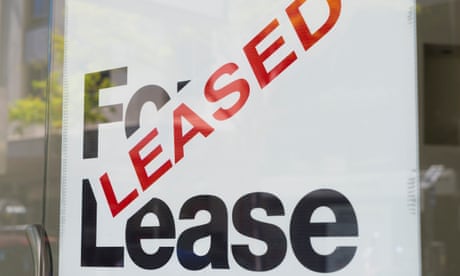- by foxnews
- 08 Apr 2025
‘Forced to move home’: discrimination of Queensland sex workers needs to end, say advocates
‘Forced to move home’: discrimination of Queensland sex workers needs to end, say advocates
- by theguardian
- 20 Apr 2022
- in news

Advocacy groups say sex workers in Queensland are being forced into dangerous situations due to "outdated" legislation that allows accommodation providers to discriminate against them.
Under the state's Anti-Discrimination Act (1991), landlords and accommodation providers can lawfully evict sex workers, refuse them housing or treat them "unfavourably" in any way in connection to accommodation, including by requiring them to pay higher rents or room fees.
This discrimination can occur if a person "reasonably believes" a person is using or intends to use the accommodation for sex work.
Respect Inc and DecrimQLD's campaign manager, Janelle Fawkes, said the accommodation amendment has contributed to systemic vilification and exploitation of sex workers since it was introduced in 2012.
She said sex workers have reported being evicted in the middle of the night, charged more for housing and billed random costs that have not been previously agreed upon.
"We think there's a direct relationship between housing instability for sex workers and the exemption in the Anti Discrimination Act," said Fawkes.
"Discrimination [of sex workers] is excessive. It's very frequent and has a broad range of impacts."
A survey of 204 sex workers in the state by DecrimQLD showed 72.5% have experienced discrimination when it comes to accommodation, banking, policing, sexual harassment and healthcare.
Of the sex workers who experienced discrimination in the same survey, only 9% reported it.
This came after Victoria passed legislation decriminalising sex work earlier this year, which will make Queensland the only Australian jurisdiction that allows accommodation providers to discriminate against sex workers.
Advocates have expressed hope that this will change, with the Queensland Human Rights Commission undertaking a review of the state's anti-discrimination laws.
The review has received a number of submissions from sex workers. In one, a Brisbane sex worker says her landlord refused to extend her lease because she was working from home.
"Even though all my rent and bills were up to date, I was forced to move home rather than be considered to stay," she said.
"I have seen friends and colleagues thrown out of accommodation just because a hotel receptionist took a dislike to them and used sex work as a reason for eviction."
A submission by Respect Inc and DecrimQld also quoted several sex workers, with one saying: "The manager of the body corporate threatened to tell the neighbours if I didn't provide sex for free."
"I was denied rentals by hundreds of agents, I couldn't possibly report them all," another sex worker said.
But state's anti-discrimination laws don't just target sex workers when it comes to accommodation.
Another amendment of the act that has sparked outrage allows for the discrimination of sex workers, transgender, gender diverse and intersex people in work settings involving children.
Fawkes called for these both of these amendments to be repealed.
"There is no evidence to demonstrate either sex workers or someone based on their gender places children at risk," Fawkes said.
"[These] pieces of legislation are extremely outdated. They always would have been extremely poor policy but in 2022 they stand out as being particularly horrific."
Sex workers have reported being frequent targets of discrimination, with stigma affecting all aspects of their lives.
To address this discrimination, Fawkes also wants the attribution of "lawful sexual activity" in the state's anti-discrimination laws to be replaced with an attribute that covers all sex workers.
Lawful sexual activity in Queensland refers to sex work in licensed brothels or those who work as sole operators visiting clients or working out of their own homes.
As a result, Fawkes said many aspects of sex work were not "lawful" in Queensland. This includes practising basic safety strategies such as checking up on a colleague before and after a booking, or employing a receptionist.
"The attribute 'lawful sexual activity' has proven to be extremely ineffective in providing anti-discrimination coverage for sex workers in Queensland," Fawkes said.
"A lot of sex workers experience discrimination. But if you want to report discrimination, the attribute has to be correct."
The Queensland Law Reform Commission is currently considering how to decriminalise sex work in the state, with its report due in November.
- by foxnews
- descember 09, 2016
Ancient settlement reveals remains of 1,800-year-old dog, baffling experts: 'Preserved quite well'
Archaeologists have recently unearthed the remarkably well-preserved remains of a dog from ancient Rome, shedding light on the widespread practice of ritual sacrifice in antiquity.
read more


